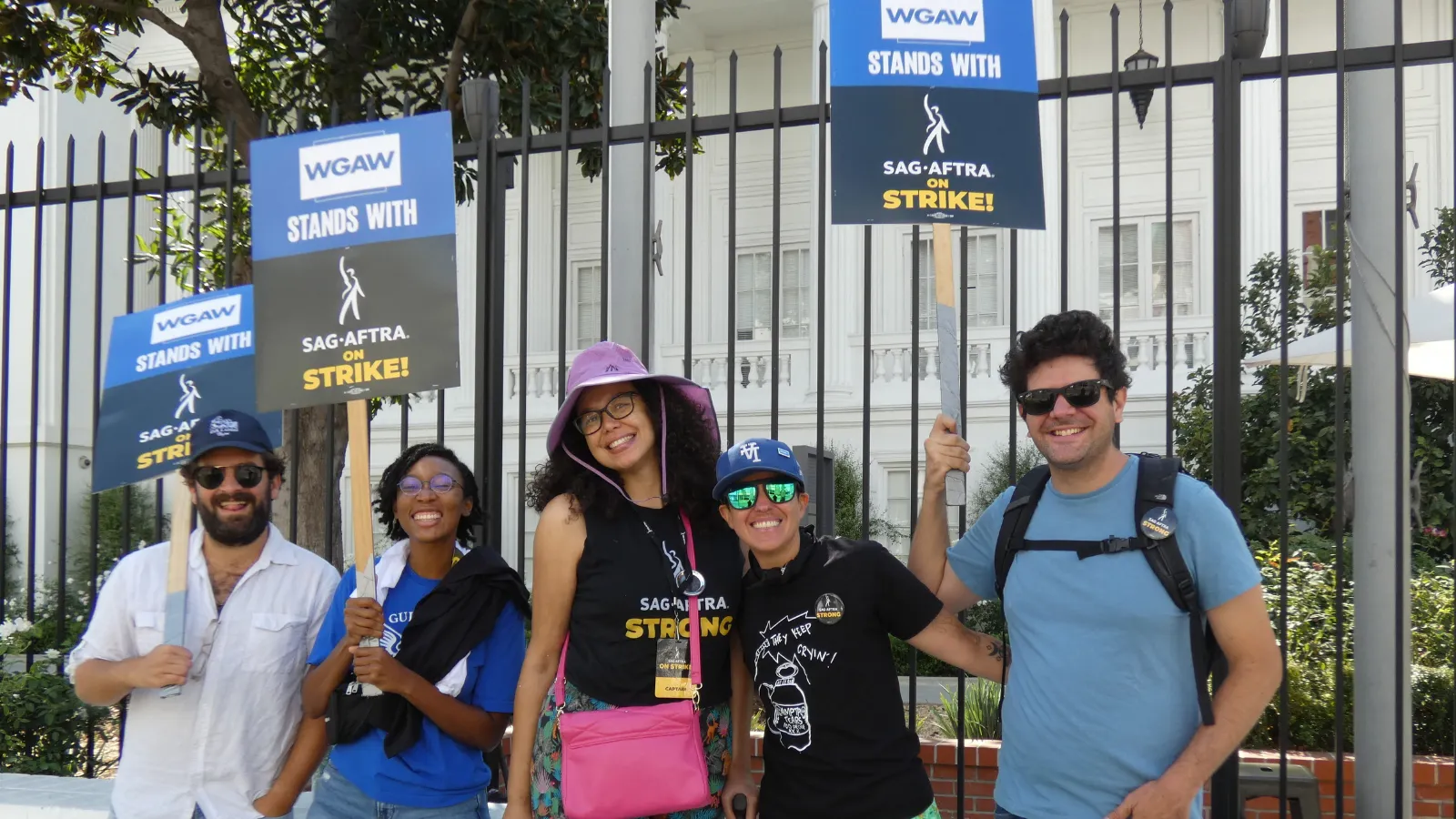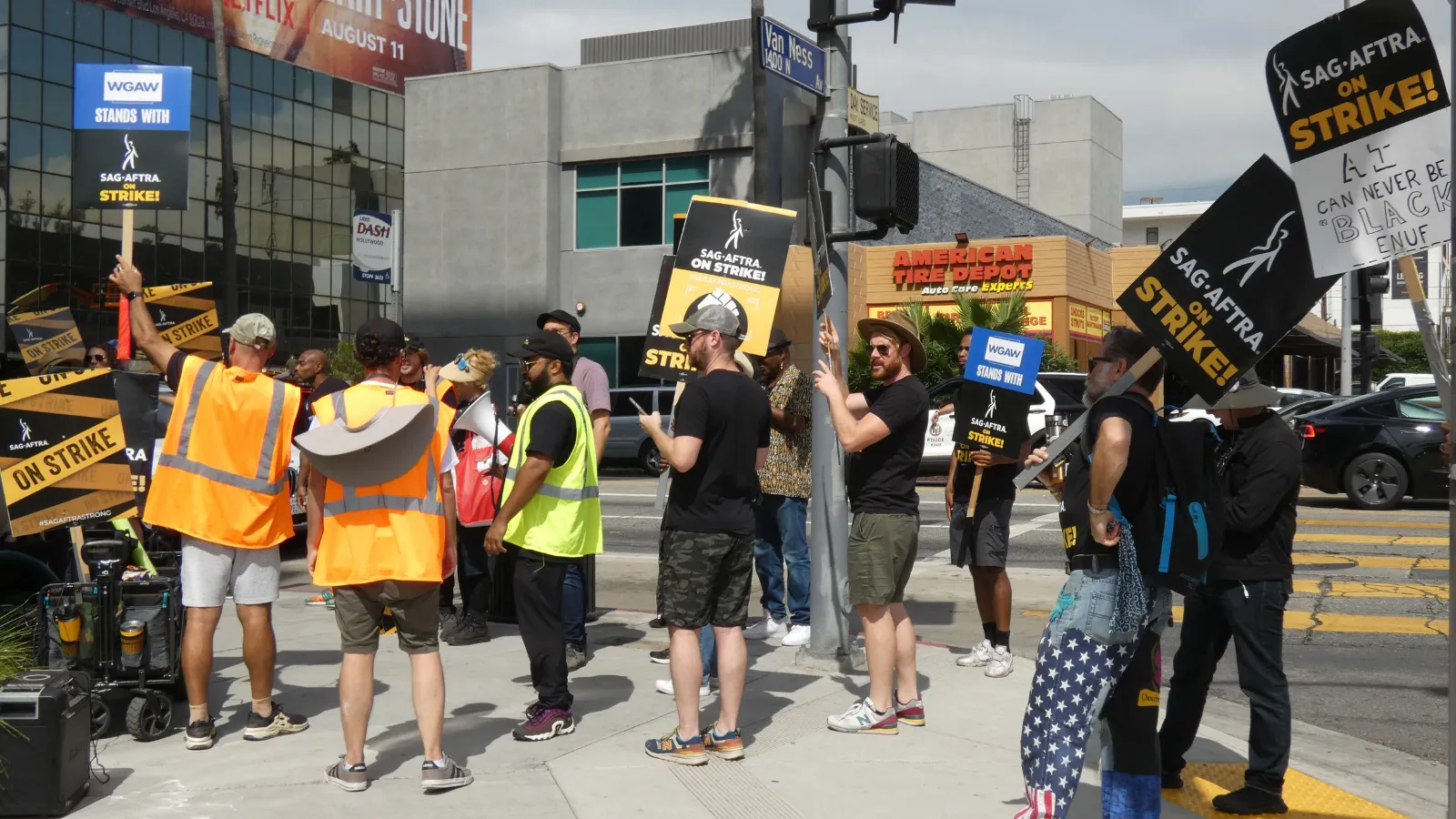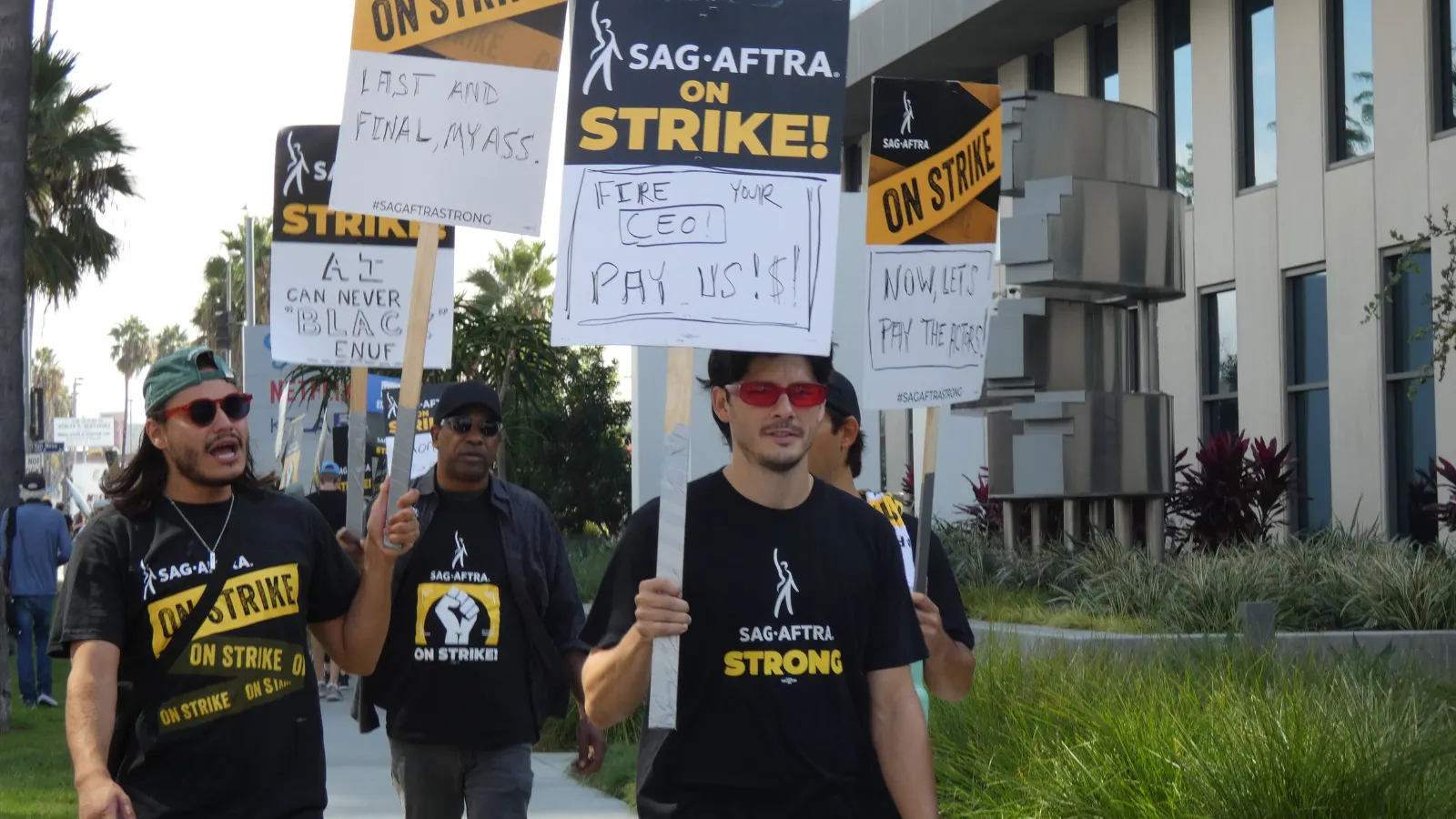A day after the Writers Guild of America (WGA) approved a tentative deal with the Alliance of Motion Picture and Television Producers (AMPTP) and called an end to its 146-day strike, the members of SAG-AFTRA continue to walk the picket lines looking ahead to their own renewed negotiations. While only one factor in the ongoing talks, artificial intelligence remains a central concern for the striking actors.
Negotiations between SAG-AFTRA broke down in July over several issues, including protecting background actors—for whom the studios offered one day of pay for letting the studios create digital avatars of them that could be used in future projects—and securing residual pay from streaming platforms.
Even though the WGA as a body ended its strike on Wednesday and left the picket lines as an organization, individual writers remain on the picket lines to support SAG-AFTRA members.
“I've been out here for the entire time that the actors have been out here,” SAG-AFTRA member Page Kennedy told Decrypt outside Netflix’s Sunset Boulevard offices. “I wanted to see how the vibe would change after the writers made their deal, and I see that they are still out here with us in solidarity.”

Kennedy, who recently starred in the Meg2: The Trench and the Starfield game from Bethesda Game Studios, also said he was curious if the writers would continue to walk with them after their strike had been called off, and said that seeing the WGA members still walking with SAG-AFTRA was positive. He said that the WGA’s deal with the AMPTP was a good sign that SAG-AFTRA would soon have a deal as well.
Kennedy and others also expressed their continued apprehension about using artificial intelligence in film and television.
“They are basically trying to weed us out as human beings and making us defunct,” Kennedy said, adding that AI lacks the nuanced understanding and adaptability humans gain through life's ups and downs.
The WGA's tentative agreement with the AMPTP stipulates that AI-generated written material could not be considered literary or source material, and writers can choose to use AI with the company's consent, but they cannot be forced to use AI software. Additionally, studios must disclose if any material given to writers has been generated by AI or incorporates AI-generated material.
While members of the WGA celebrated their win after news of the tentative agreement between the studios and WGA broke, Deadline reported that Netflix, Max (formerly HBO MAX), Paramount+, Disney, and Peacock had joined with other companies to form a new trade group called The Streaming Innovation Alliance that would advocate for “federal and state policies that impact their services.”
“People were so consumed by that agreement that they didn't see [the announcement],” talent manager and partner at Next Level Entertainment Kimberly Strauss said. “So yesterday, we were trying to get it over to the negotiating committee for the WGA so that they could see it before they send the votes out to the members because the members should be aware that this is happening.”
With the SAG-AFTRA strike in its third month, members have had to find ways to support themselves outside their regular acting gigs. SAG-AFTRA member Mitch Ward said he had to rely on his information technology (IT) background to help keep him afloat. He said his agent and manager are at a standstill while the strike continues.
“I've been in this business as an actor with the Screen Actors Guild since 1988, and this is my second strike,” Ward said. “So we go up and down, but this time, we have got to get a solid contract, one that is going to protect us for a while. I don't want to do another strike—I want to retire.”
While much focus has been put on the use of generative AI in productions, residuals for streaming movies and television shows are another sticking point the two groups have not agreed on.
“To put it as simply as possible, we're not getting paid as much for streaming residuals as we were for broadcast shows on ABC, NBC, CBS,” SAG-AFTRA member Kate Comer told Decrypt. “But if you see a one-hour drama that's getting tons of awards and acclaim on Hulu, Netflix, HBO Max, we get a yearly payment to that.”
Comer—who appeared in the recent Hulu mini-series The Dropout and FX’s It's Always Sunny in Philadelphia—highlighted the current differences between residuals for streaming and broadcast programming.
“The highest you can get right now is about $1,800 a year for unlimited streaming on a huge platform, whereas if the shows were on broadcast, you would continue to get paid every time it aired forever.”

“I'm passionate about that because as my career has grown, I've gotten bigger roles, but I haven't gotten paid like my predecessors,” Comer said. “So that's a big deal for me.” When asked about using AI to create digital avatars of background actors, Comer was adamant that it should not be allowed without proper compensation.
“They can't use it for whatever they want forever,” she said. “That can't be allowed, there needs to be regulations, we need to have power over our own images.”
As the day’s picketing came to a close, SAG-AFTRA members and their WGA supporters joined in a rallying chant of “one day longer, one day stronger.”

